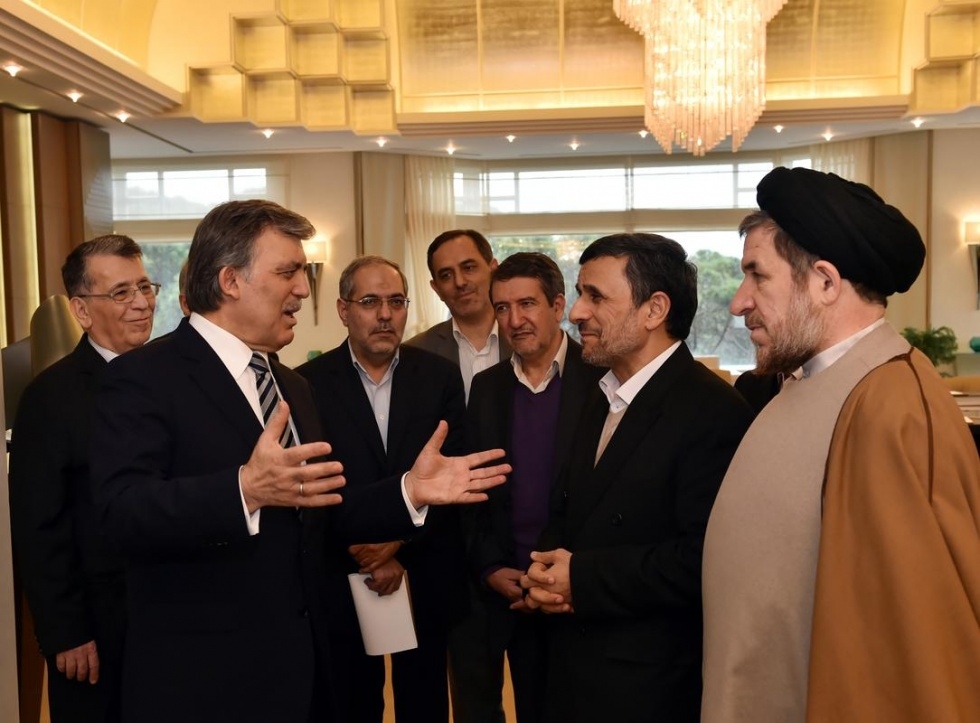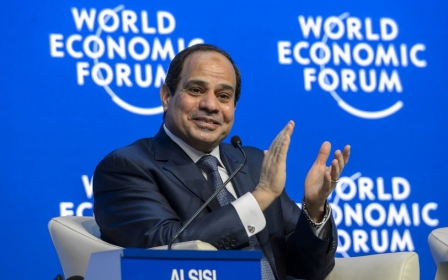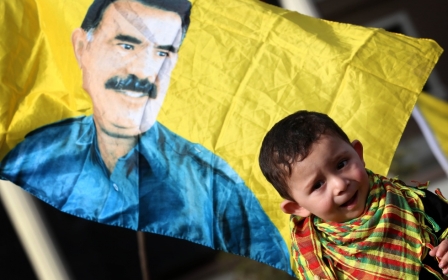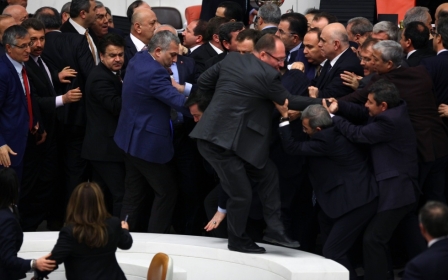ANALYSIS: Could Gul become half of Erdogan’s new double act?

When Abdullah Gul stepped down after seven years as figurehead president last year, President Recep Tayyip Erdogan, his successor and Turkey’s first directly elected head of state, showered him with generous compliments. It was a clear signal that the two men, who have contrasting approaches to politics, though they both come from the Justice and Development Party (AKP), were still on warm terms.
Not everyone was entirely sure of that. President Erdogan silenced any doubts about that by describing himself and Gul as friends fighting for the same cause.
As president, Gul displayed a tendency to follow a much softer line on matters such as the June 2013 Gezi protests, the banning of social media on the Internet, and similar issues. On the other hand, he seldom vetoed or amended the tough legislation on law and order and related issues introduced by the AKP, steering a skillful middle road which avoided the fierce confrontations of Turkish politics, and so maintaining dialogue with all shades of opinion and especially in side-stepping a clash with Erdogan.
Since leaving office Gul, now 64, has remained in the public eye in Turkey, though he holds no office. Speculation that he might set up his own party has turned out to be untrue. Nor has he shown any visible interest in following retired heads of state from other countries and running an international organisation.
Erdogan gives Gul green light
On Friday, President Erdogan surprised the Turkish media by saying that if Gul re-entered politics and ran for office in the 7 June general elections, this would be “nice and a good thing.” But the decision on whether or not to do so rested entirely with Gul, the president added.
Erdogan was speaking at the end of a week full of difficult events and bad news and his expression as he spoke was sombre. The Turkish lira sank in 24 hours to its lowest level ever during the week. Many people believe that the president’s continuing diatribes against the central bank, demanding ever lower interest rates, are the main reason for this. The stakes are high in the Middle East where Turkey is preparing to join the offensive to wrest Tikrit from the Islamic State group and may also be negotiating a possible closer alignment with the Saudis which could alienate Iran.
The president is not satisfied even with those closest to him. On Wednesday he spoke coldly about Hakan Fidan, the former head of Turkey’s intelligence service, who resigned on 6 February in order to run for parliament, apparently in defiance of the president’s express wishes. Fidan’s departure has led to speculation that relations between the president and his prime minister, Ahmet Davutoglu, are uneasy. Davutoglu accepted Fidan’s resignation and is thought to favour giving him a senior place in a future cabinet.
Trouble in the Erdogan court
Claims of differences between president and prime minister are strongly denied in Ankara, but there have been several moments in recent months when the two men appeared to be at odds, not least when the prime minister indicated that he felt that charges against some of former ministers who retired in the December 2013 corruption scandal in Turkey, should be further investigated.
News of the president’s remarks about the desirability of a return to politics by Gul immediately triggered press speculation that perhaps the president was firing a warning shot against the prime minister. Gul in parliament would be a senior figure to the prime minister in a country where seniority and venerability are strongly prized. He might even be an alternative prime minister and AKP leader himself. A swap, rather like that between President Putin of Russia and Vladimir Medvedev, was widely discussed a year ago, but ruled out. Now it could conceivably be on the cards - if the two men both want it. That could of course even mean the end of Davutoglu’s role as a leader and perhaps his career at the frontline.
Gul as new PM?
All this assumes, of course, that if, after the elections, Erdogan has a parliamentary majority enabling him to introduce a new constitution for Turkey, setting up an executive presidency, the office of prime minister is retained: it might be that Erdogan favours an executive presidency along US lines. But as yet this is unknown.
So the question now is whether or not Gul wishes to throw his hat into the ring. Under the circumstances, there can be no doubt that if he wants to, he will top the AKP party list wherever he stands - perhaps in his hometown of Kayseri - and win a place in parliament.
There has been as yet no direct response from Gul himself but T24, a leading Turkish news website, says that ‘sources close to him’ believe there would have to be two conditions for him to agree to run. The first would be that he would have to be invited to do so by Davutoglu as the current prime minister and party leader, and the second being that the party would have to hold a ceremony to mark the invitation.
Different voices at the top of the AKP are now coming forward with subtly nuanced hints about what they think should happen over a Gul candidacy. The remarks of Bulent Arinc, the deputy prime minister, seemed to indicate support for Gul. The Minister of Energy Taner Yildiz said that the decision would have to be shared by the three at the top - pointedly including Davutoglu in the decision.
On course for victory
This does not yet add up to significant political disarray. There is no doubt that the AKP is on course for a massive victory in June with the two main opposition parties languishing perhaps 25 or 30 percent behind it in the polls. Since Erdogan’s wishes will undoubtedly be decisive as far as the nomination of candidates is concerned, he is likely to emerge with very solid parliamentary backing.
But personal tensions at the top during the next three months could risk denting the image of the AKP. And if Gul does return to frontline politics, the outcome could be a less monolithic political scene in the next Turkish parliament.
- David Barchard has worked in Turkey as a journalist, consultant, and university teacher. He writes regularly on Turkish society, politics, and history, and is currently finishing a book on the Ottoman Empire in the 19th century.
The views expressed in this article belong to the author and do not necessarily reflect the editorial policy of Middle East Eye.
Photo: Former President of Turkey Abdullah Gul (L) meets former Iranian President Mahmoud Ahmadinejad (2nd L) in Istanbul on February 26, 2015.
New MEE newsletter: Jerusalem Dispatch
Sign up to get the latest insights and analysis on Israel-Palestine, alongside Turkey Unpacked and other MEE newsletters
Middle East Eye delivers independent and unrivalled coverage and analysis of the Middle East, North Africa and beyond. To learn more about republishing this content and the associated fees, please fill out this form. More about MEE can be found here.




